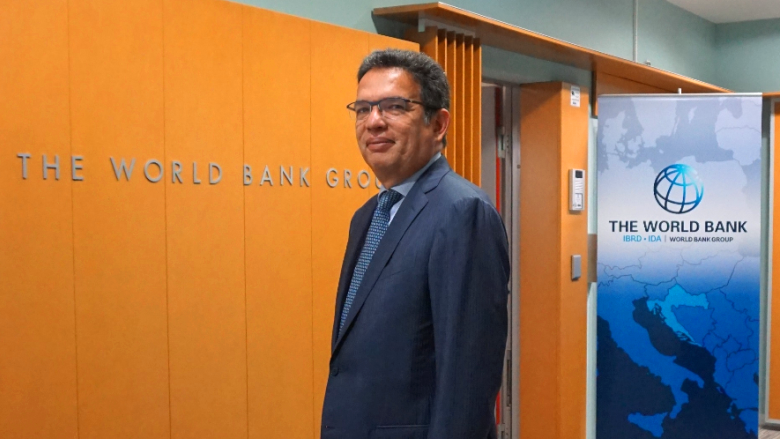Excerpts from an interview with Carlos Piñerúa, World Bank Country Manager for Croatia and Slovenia for Nacional weekly, published on September 27, 2016.
Nacional: Another election is behind Croatia. The former government only lasted six months and did not manage to implement any of the announced reforms. Nonetheless, numbers are telling us that the economy is moving in a positive direction and after six years the country is slowly getting out of a recession, GDP is growing, imports are up, the tourism season is at record level, deficit is decreasing and public debt is falling. Does this mean that Croatia functions best without a government?
Carlos Pinerua: Before I respond, I need to emphasize that there are a few things people need to think about very well and not get too complacent about things and that is my key message. You mentioned the tourism season. There are geopolitical reasons for such good results, irrespective of economic policy. Fear of terrorism for example, in the region, Turkey. Clearly the country benefited from this. Americans have an expression which says, better be lucky than good and in this case this country has been privileged. It is a safe country and it is a beautiful country, so why not come here.
So that affects the GDP, the budget revenues from tourism increase and there is a multiplier effect.
There are a couple of other factors. Obviously, oil prices have come down significantly and that has an impact on consumption which has been one of the drivers of growth in Croatia. The third factor is policy driven. There were cuts in personal income taxes last year and that has had an effect on consumption. So the three things put together produced positive results.
Also, after six years of recession the economy is bound to rebound by itself. This is a capitalist system after all. That’s the way the capitalist system works. If prices are down, the demand will pick up eventually. It does not mean that you are better off without a government and people should not get too complacent. Geopolitics change very quickly, tourism is very sensitive. Croatia is a very safe country and safety is an essential element of tourism. This does not mean that you should relax.
Nacional: What do you expect from those who will form the next government? Can this positive trend continue without real structural reform and what would those reforms be?
CP: We, ourselves are embarking on the design of a new country partnership framework. We are trying to define areas we should focus on with the new government. We hear a lot about these structural reforms and we would like to know in particular which reforms. We have been discussing in general terms and that is why I asked my team, which started to work on this this week, to look deeper into what are the constraints for the economy to grow. Is it the business environment since people are not investing enough in Croatia? Why are people not employing enough?
I talk a lot with private sector representatives and ask them what it is that bothers them most. Usually they say – regulations. Yes, but which particular one? Some of them are very dramatic and say let’s get rid of ninety percent of regulations. But that is not possible.
That’s why we will have consultations throughout the country and do a thorough diagnostic of the economy, trying to find what are the policies the government should focus on. We want to go from generalities to specificity. For example, why is it necessary for business registration to go through the court system which is already overwhelmed. Maybe we can bring expertise and experience from other countries in this case. A good example is the Netherlands, or Singapore. But it is not possible to apply exactly the same measure to the Croatian situation. For example, here we have the local governments involved and are they on board to do these things.
Nacional: Are the positive indicators presented recently by Minister Marić results of Tihomir Oresković’s government’s budget and measures or is it only now that we see the results of the previous government headed by Zoran Milanović?
CP: It is very difficult to separate all these measures from each other. Like I said, when you have growth, you have higher tax revenues and when you have more tax revenue, fiscal accounts improve. To say that it is the result of one or the other is impossible.
There is a continuity in economic policies. With Minister Marić, we started a dialogue the second day after he took office and I believe that his attitude about decreasing expenditures and not increasing taxes went in the right direction and was successful. The moves were viewed positively by the international community. Both governments took the importance of fiscal consolidation very seriously. Of course they were under pressure from the European Commission to do something. So both of them deserve credit. In addition to focusing on the expenditures, it is very important that Minister Marić made it clear that they will not create more uncertainty by changing taxes, which is one of the biggest complaints by foreign investors.

